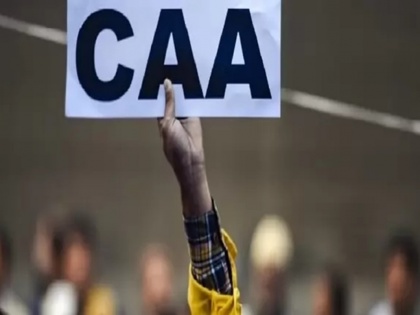What Is CAA? All You Need To Know About Citizenship Amendment Act Rules
By Lokmat English Desk | Published: March 11, 2024 05:27 PM2024-03-11T17:27:52+5:302024-03-11T17:29:06+5:30
The Union Ministry of Home Affairs is likely to announce the rules for the Citizenship Amendment Act (CAA) by ...

What Is CAA? All You Need To Know About Citizenship Amendment Act Rules
The Union Ministry of Home Affairs is likely to announce the rules for the Citizenship Amendment Act (CAA) by Monday evening, according to the reports. Earlier this year, Home Ministry insiders had hinted that the CAA rules would be unveiled before the Lok Sabha elections. Speculation has arisen that Prime Minister Narendra Modi will address the nation soon, raising anticipation that the CAA rules might be notified by the MHA tonight.
Read Also | Modi Govt likely to Notify Citizenship Amendment Act Rules Today: Reports
As the Ministry of Home Affairs (MHA) prepares to announce the regulations for the Citizenship Amendment Act (CAA) 2019, here are some important details about the Citizenship Amendment Act:
What Is CAA?
Introduced by the Modi government in 2019, the CAA aims to grant Indian citizenship to persecuted non-Muslim migrants, including Hindus, Sikhs, Jains, Buddhists, Parsis, and Christians. These individuals migrated from Bangladesh, Pakistan, and Afghanistan and arrived in India before December 31, 2014.
Key Features of CAA:
- The CAA does not apply to Indian citizens. It seeks to grant Indian citizenship to specific foreigners who have faced persecution based on their religion in neighboring countries.
- The legislation applies to those "forced or compelled to seek shelter in India due to persecution on the ground of religion."
- It excludes areas under the Sixth Schedule of the Constitution and regions covered by the Inner Line Permit system to protect the interests of the tribals and indigenous people of the North-Eastern region. Migrants in these areas will not be eligible to apply for Indian citizenship.
- Over the last six years, approximately 2830 Pakistani citizens, 912 Afghan citizens, and 172 Bangladeshi citizens have been granted Indian citizenship. Many of them are from the majority community in these countries.
- The CAA is not targeted at any religious community from abroad. Instead, it provides a mechanism for migrants who may have otherwise been labelled "illegal," allowing them to apply for Indian citizenship if they meet specific conditions.
Open in app